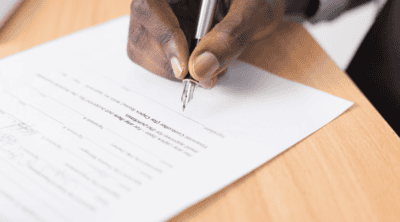The short answer is no. Today’s digital age means that your geographical location is no longer a limiting factor when choosing a conveyancing solicitor.
Conveyancing procedures are pretty standard across England and Wales, regardless of your property’s location. Your solicitor can manage your transaction through phone calls, emails and postal communication, so there’s usually no need for in-person visits to their office.

How Do I Hire a Solicitor?
It’s best to instruct a solicitor as soon as possible when in the process of buying or selling a property. Maybe even consider instructing a solicitor before making an offer on a property, so that if your offer is accepted, you’re ready to begin the legal transfer of ownership right away.
Look for a solicitor who offers a fixed-fee, no-completion, no-fee conveyancing services. This ensures that if anything goes wrong, and the deal falls through, you won’t be on the liable for any for legal fees (excluding third-party expenses).
Before settling on your chosen solicitor, do your homework. Seek recommendations from friends and family, and read online reviews from past clients to gauge their service quality. Solicitors are required by the SRA to be transparent about their fees, usually displaying their fee structure on their website or providing a conveyancing calculator for estimates.
Once you’ve settled on a solicitor, you can contact their office directly, submit an enquiry through their website or engage in a live chat.
For those who are looking for a conveyancing solicitor near me, consider contacting a specialist such as, https://www.samconveyancing.co.uk/Conveyancing-Solicitors.
What Happens After I’ve Instructed a Solicitor?
Your solicitor will begin by outlining their terms, confirming costs and obtaining a copy of your ID for verification. Typically, you’ll also need to pay upfront either 10% of their fee or the cost of any third-party expenses like local authority searches. They will also guide you through the conveyancing process.
According to unbiased.co.uk, the solicitor will outline their terms of service and send you a contract to sign and return. Your solicitor will then begin the legal process of transferring property ownership from the seller to the buyer.

How Do I Sign and Return Documents?
Since your solicitor doesn’t need to be local, documents will be sent to you via email and post. Most firms provide prepaid envelopes for returning signed documents. Additionally, some paperwork can be signed and returned online using e-signature tools.
In conclusion, it is a misconception that your conveyancing solicitor needs to be local to you. With the conveyancing standards being pretty much standard across England and Wales and the use of technology for communication, location is no longer a limiting factor for choosing a solicitor.
